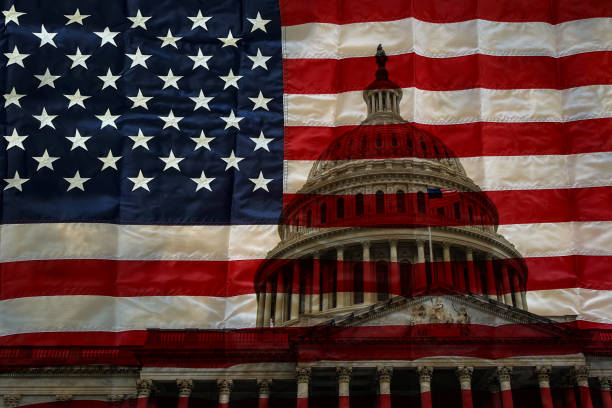1. The Purpose of Political Ideology
Political ideologies are meant to provide a framework for governance, justice, and societal organization.
At their best, they:
- Offer a vision for collective well-being.
- Define rights and responsibilities.
- Guide public policy and civic engagement.
However, when ideologies become rigid, dogmatic, or weaponized, they can shift from serving the people to controlling them.
2 Signs of Ideological Warfare
Political ideologies become warfare against the people when:
- Dissent is criminalized: Citizens are punished for questioning authority or expressing alternative views.
- Institutions are captured: Courts, media, and education systems are used to enforce ideological conformity.
- Language is manipulated: Terms like “freedom,” “justice,” or “security” are redefined to justify authoritarian measures.
- Enemies are manufactured: Internal or external scapegoats are used to rally support and suppress opposition.
- Power is centralized, with checks and balances eroded in favor of executive or party dominance.
3. Historical and Contemporary Examples
- Soviet Union: Marxist-Leninist ideology was used to justify purges, censorship, and mass surveillance.
- Nazi Germany: National Socialism turned racial ideology into a genocidal state apparatus.
- Modern authoritarian regimes: In some countries today, populist or nationalist ideologies are used to suppress minorities, silence journalists, and dismantle democratic norms.
4 The Role of Citizens and Institutions
When ideology becomes oppressive, the role of civil society, independent media, whistleblowers, and judicial systems becomes critical. Resistance can take many forms:
- Peaceful protest and civil disobedience.
- Legal challenges and investigative journalism.
- Cultural and intellectual dissent.
5. Safeguarding Against Ideological Tyranny
To prevent ideology from becoming warfare against the people, societies must:
- Encourage pluralism and open debate.
- Protect individual rights and minority voices.
- Maintain institutional independence.
- Promote civic education and critical thinking.
Historical and Contemporary Patterns of Political Repression in the U.S.
6. McCarthyism and the Red Scare
During the Cold War, particularly in the 1940s and 1950s, the U.S. government engaged in widespread political repression under the guise of anti-communism. This included:
- Blocklisting individuals in entertainment and government.
- Surveillance by the FBI under J. Edgar Hoover.
- Public accusations without substantial evidence. These actions created a chilling effect on free speech and political dissent 1.
7. Ideological Exclusion and Deportation
Historian Julia Rose Kraut documents how the U.S. has long used ideological exclusion laws to bar or deport foreign nationals based on their political beliefs. This includes:
- The Alien Friends Act of 1798.
- Cold War-era exclusions of communists and anarchists.
- More recent uses of immigration Law to exclude critics and activists. These policies often circumvent First Amendment protections by framing them as immigration issues.
8 Militarized Policing and Protest Suppression
In recent years, critics have pointed to the militarization of police and the use of force against peaceful protesters as signs of authoritarian drift. Examples include:
- The use of tear gas, rubber bullets, and mass arrests during protests.
- Surveillance of journalists and activists.
- The response to events like Charlottesville and the George Floyd protests was seen as excessive and politically motivated.
9. The “Chilling Effect” and Domestic Surveillance
The fear of being surveilled, censored, or punished for dissent has led to what legal scholars call a “chilling effect”—where individuals self-censor to avoid government scrutiny.
This has been exacerbated by:
- The Patriot Act and the expansion of surveillance powers following the 9/11 attacks.
- The labeling of certain political views as “extremist” or “domestic terrorism.”
- The use of social media monitoring to track ideological expression.
Conclusion: A Slippery Slope, Not Open Warfare
While the U.S. government does not engage in literal warfare against its citizens, there are documented instances where ideological enforcement, political repression, and state overreach have undermined civil liberties.
These actions, especially when unchecked, can have a profoundly damaging impact on dissent, free expression, and public trust, resembling internal conflict.
Historical Case Studies
Fascist Italy under Mussolini
Benito Mussolini’s regime used fascist ideology to suppress dissent, control the press, and enforce conformity through propaganda and violence. The regime’s emphasis on nationalism and militarism led to aggressive expansionism and internal repression, including the persecution of political opponents and ethnic minorities.
Francoist Spain
FranciscFranco’s's authoritarian regime in Spain (1939–1975) was rooted in nationalist and Catholic ideology. It suppressed regional identities, banned political opposition, and used censorship and secret police to maintain control. The regime’s ideological rigidity stifled democratic development for decades.
Iran under the Islamic Republic
Following the 1979 revolution, Iran established a theocratic regime based on Shia Islamic ideology. The government enforces religious conformity through morality police, censorship, and harsh penalties for dissent. oPolitical opposition w, wwomen’sirights activistsand religious minorities have faced systematic repression.
North Korea
The North Korean regime, under the Kim dynasty, is built on a blend of Marxist-Leninist and Juche (self-reliance) ideology. It maintains absolute control through surveillance, propaganda, and a cult of personality. Citizens face severe punishment for ideological nonconformity, including imprisonment in labor camps.
